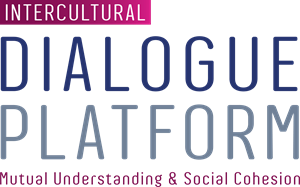with Dr Frédéric Volpi, St Andrews University, the UK
Are Islamist politics in Tunisia today a template for the wider region and a model of political integration?
Is the Tunisian transition to democracy, albeit still imperfect, an indication of things to come for Islamist political parties across the region or is it the exception?
Can it provide today a concrete template for Muslim democracy?
And is the Ennahda model now replacing that of Turkey’s AKP as the way forward for democratization in the Middle East and North Africa?
Regarding all these issues there remain important and often unanswered questions about what makes Ennahda’s brand of Islamism and Tunisia’s brand of multiparty democracy function the way it does. Is success purely circumstantial or are there specific factors and mechanisms at work that can be replicated elsewhere in the region?
This talk addresses these issues by comparing the relatively successful Ennahda democratic experience in Tunisia in the 2010s to the failure of the Muslim Brotherhood led democratic experiment in Egypt and the de-liberalization of the political sphere by the AKP in Turkey during the same decade.
Professor Volpi will investigate 3 types of dynamics:
- The internal life of the Ennahda movement itself and its internal decision-making process.
- Inter-party relations and interactions between secularized and Islamicised actors in the Tunisian political system.
- The religious competition between mainstream Islamists (Ennahda) and other Islamist actors (including salafis and jihadis).
Looking at these processes provides a framework to explain the different trajectories of political Islam in Tunisia, Egypt, and Turkey, as well as in the wider region. An better comprehension of how these three elements combine provide a key to understanding where, when and under which circumstances the Ennahda experiment can be replicated. It also helps us to understand better some characteristics that a contemporary Muslim democracy can have. Finally, it provides insights into the role that external players like the EU can play (and cannot play) in different scenarios and policy fields.
About the Speaker
Frédéric Volpi is Senior Lecturer in international politics at the School of International Relations of the University of Saint Andrews (UK). He specializes in democratization, authoritarianism, contentious politics and Islamism, with a focus on the Middle East and North Africa. His most recent books include Microfoundations of the Arab Uprisings (Ed.) (Amsterdam UP, 2018) Revolution and Authoritarianism in North Africa (Oxford UP, 2017), Handbook of Mediterranean Politics (Ed.) (Routledge, 2017), and Political Islam Observed (Oxford UP, 2010). Dr Volpi is also the editor-in-chief of the journal Mediterranean Politics. He has conducted research in Algeria, Tunisia and Morocco with support from the British Society for Middle Eastern Studies, the Centre for the Advanced Study of the Arab World, the Gerda Henkel Foundation and the UK Economic and Social Research Council.
REGISTER HERE: https://goo.gl/forms/MT8KRjasLnjiBjJr2

Recent Comments